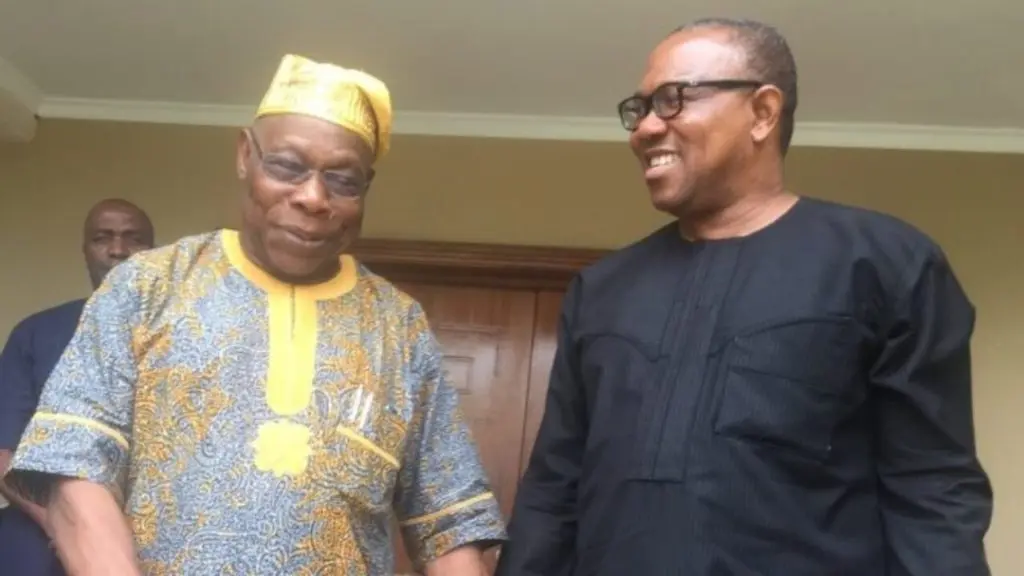As the 2023 presidential election draws closer, different political actors have decided to openly pitch their tents with their preferred candidate. One of such is the ex-President of Nigeria, Chief Olusegun Obasanjo, throwing his weight behind Peter Obi of the labour party. Expectedly, this news has garnered varying reactions from supporters of Obi and other political parties in the country.

Before this open endorsement, it has been widely speculated that Obasanjo will back Obi considering his insistence that the presidency is zoned to the southern region. The candidate of the All Progressives Congress Bola Ahmed Tinubu knows he has little or no chance to be declared as Obasanjo’s endorsed candidate. Tinubu and Obasanjo are old-time political foes and the latter has, on numerous occasions, lambasted the former president and even tagged him an ‘election rigger’. Based on these premises, it will be a surprise if Obasanjo does not back the labour party presidential candidate. The questions begging for answers are; what are the effects of Obasanjo’s endorsement of Peter Obi? If Obasanjo has no electoral value as claimed by the PDP and APC, why then are they so bothered about who he supports? Is Peter Obi now closer to the presidential seat than ever?
Whether it translates to votes or not, Obasanjo’s endorsement of Peter Obi is a huge plus for the Labour Party presidential campaign. It stamps Peter Obi’s quest to be Nigeria’s president. There have been insinuations that Obi is only ‘testing the waters’ by being on the ballot but this endorsement should nip that in the bud. It sends the message that Obi is not vying to ‘test waters’ but to clinch the highest political seat in the country. This will serve as a morale booster for those championing a president of Igbo extraction.
The argument that Obasanjo’s endorsement will not translate into real votes is a valid one. Obasanjo’s electoral value has diminished since he left office in 2007. His intention to build a political empire by hiring and firing political officeholders at will did not augur well. The Obasanjo administration became infamous for undemocratic actions. The judiciary was reduced to merely a tool in his hands and the legislature was just an extension of the executive. He proclaimed that his unsuccessful third-term bid will be a ‘do or die’ affair. The 2007 election was so poor that the Independent National Electoral Commission refused to upload it on its website. Even the beneficiary of the rigged election, Late President Umar Musa Yar’adua, asserted that the election that brought him in was rigged. These undemocratic policies ravished the Obasanjo administration and negatively affected his political value after his administration.
Obasanjo has backed many politicians since he left office but it has largely has no effect in the polls. In the southwest region, Obasanjo holds little political value as a result of how his presidency was viewed by many. The people in the southwest region has repeatedly accused Obasanjo of excluding the region during his tenure, and as such do not see him as the region’s political leader. In the 2019 election, Obasanjo backed the PDP candidate Atiku Abubakar, but the ex-president lost his polling unit to the APC. Election results from his polling unit in ward 22 in Abeokuta north LGA showed that the current president polled 87 votes to defeat Abubakar who secured 18 votes.
What this portends for Peter Obi and the Labour Party is that more ground and grassroot works need to be carried out to win the Presidential seat. The Presidential election requires a diverse approach and endorsement by ex-President Olusegun Obasanjo is only a very little part of this. Thus, the labour party should not see OBJ’s endorsement as a success but a call to intensify its campaign in the nooks and crannies of the country.


Comments are closed.